Essential oils have several benefits including helping us to sleep, relieve pain, reduce nausea, increase performance and boost our mood. But did you know that essential oils can also help with acne? It’s a natural alternative that is free from chemicals and other toxins you might not want to use.
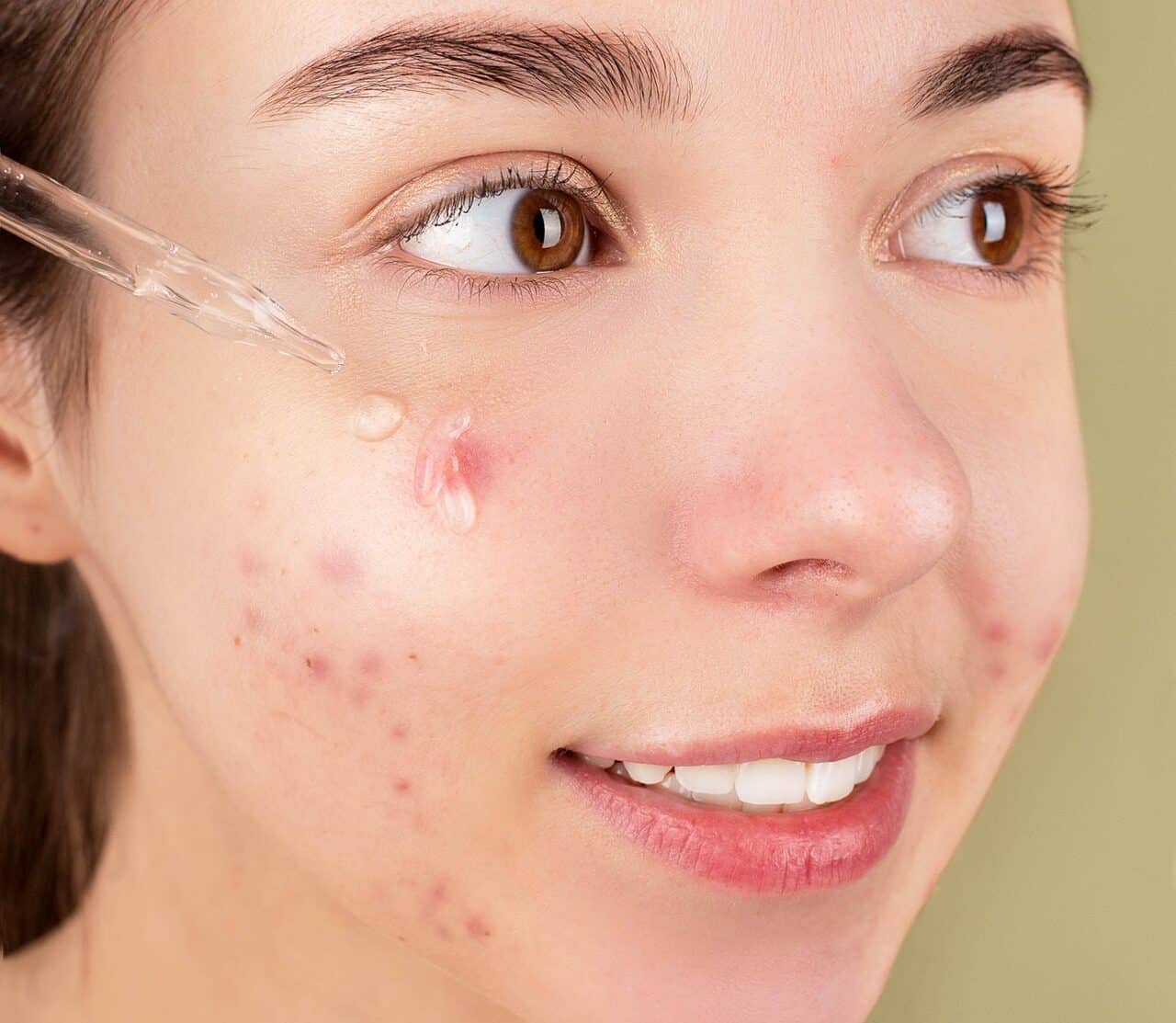
Living with acne isn’t as debilitating as it is embarrassing, but it can still affect our mental health. Acne can cause stress, anxiety, depression, and other mood disorders.
The emotional pain caused by acne can be just as devastating to one’s self-esteem. Long-term acne can have a spiraling effect on one’s body image, social life, and mental health,
What Is Acne and What Are Its Causes?
Acne can range from large pimples filled with pus to blackheads and whiteheads. A mixture of dead skin cells, excess sebum, or blocked hair follicle are all common causes of acne and cystic. However, some other causes of acne are:
- Genetic
- Hormone changes
- Medications
- Smoking
- Certain beauty products
- Poor diet
While there are certain medications to help treat acne, some unwanted side effects make people turn to natural alternatives. Fortunately, some essential oils have acne-fighting effects.
Can Essential Oils Help Treat Acne?
With numerous antibacterial, anti-inflammatory and antimicrobial properties that reduce and prevent the oils and bacteria that cause acne, it is no surprise that there are a number of essential oils that do the trick.
Essential oils are not harmful chemicals; they are natural and plant-based and have plenty of holistic benefits, including treating acne.
If beauty products full of harmful chemicals or conventional treatments aren’t working for acne, then it’s worth looking into essential oils for a more natural approach.
Essential oils are only made from the raw materials from plant bark to flowers, so, unless someone has a specific allergy, there’s little to no risk of using essential oils.
However, most essential oils should be diluted or mixed with a carrier oil such as olive oil, coconut oil or almond oil before applying to the skin to prevent over-drying or irritation.
Since many essential oils can cause more damage when used incorrectly, it is always best to check with your dermatologist before use.
Which Essential Oils Can Help Treat Acne?
If you’re looking for a natural alternative to the harsh chemicals that come with the over-the-counter treatments and clinical products, you’ll want to try one of these 15 essential oils that help with acne:
- Tea Tree
- Oregano
- Lemon
- Lemongrass
- Frankincense
- Carrot Seed
- Lavender
- Rosemary
- Bergamot
- Sandalwood
- Cedarwood
- Clary Sage
- Cypress
- Rosehip
- Chamomile
1. Tea Tree

If you’re dealing with a mild to moderate acne breakout, tea tree essential oil can help! Because of its anti-inflammatory and antimicrobial properties, tea tree oil is one of the most popular essential oils that help with acne.
When used for spot treatments, tea tree oil can help calm swelling, inflammation and redness. It may also help to prevent and reduce the scars caused from acne leaving you with clear, smooth skin.
As with most essential oils, you should never apply tea tree oil directly to the skin but instead mix it with a moisturizer. You should also avoid it if you have sensitive or eczema-prone skin since it can cause irritation or turn into true allergic eczema.
2. Oregano
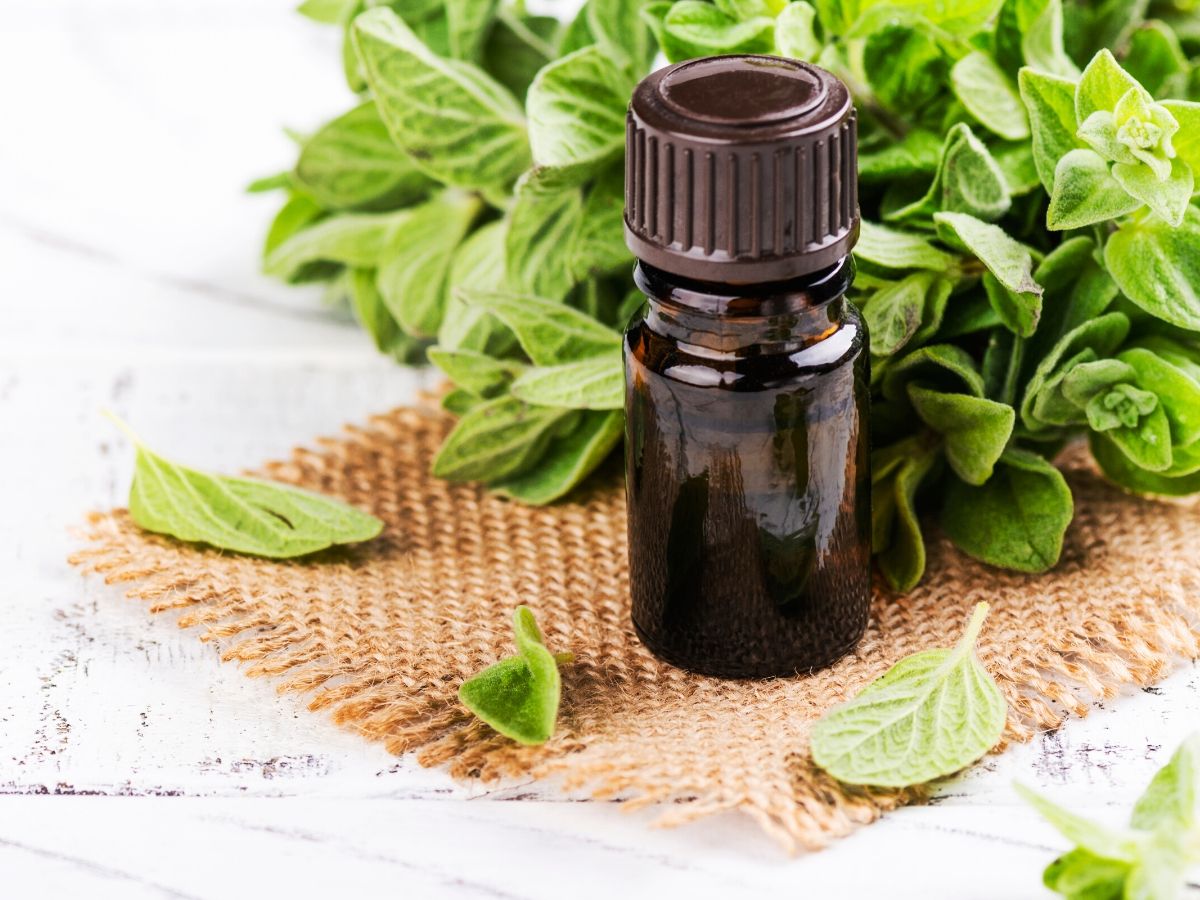
Oregano isn’t just for the kitchen! Its strong antimicrobial properties also make it an excellent choice when searching for an essential oil to help with acne.
Oregano oil helps to combat P. acnes and Staphylococcus epidermidis, two bacterias associated with the development of acne. When used as a spot treatment 2-3 times per day, it can be effective in clearing up pimples as well as prevent the occurrence of future breakouts. However, it’s important not to confuse oregano essential oil confused with oregano oil extract. You should never consume Oregano essential oil orally!
3. Lemon
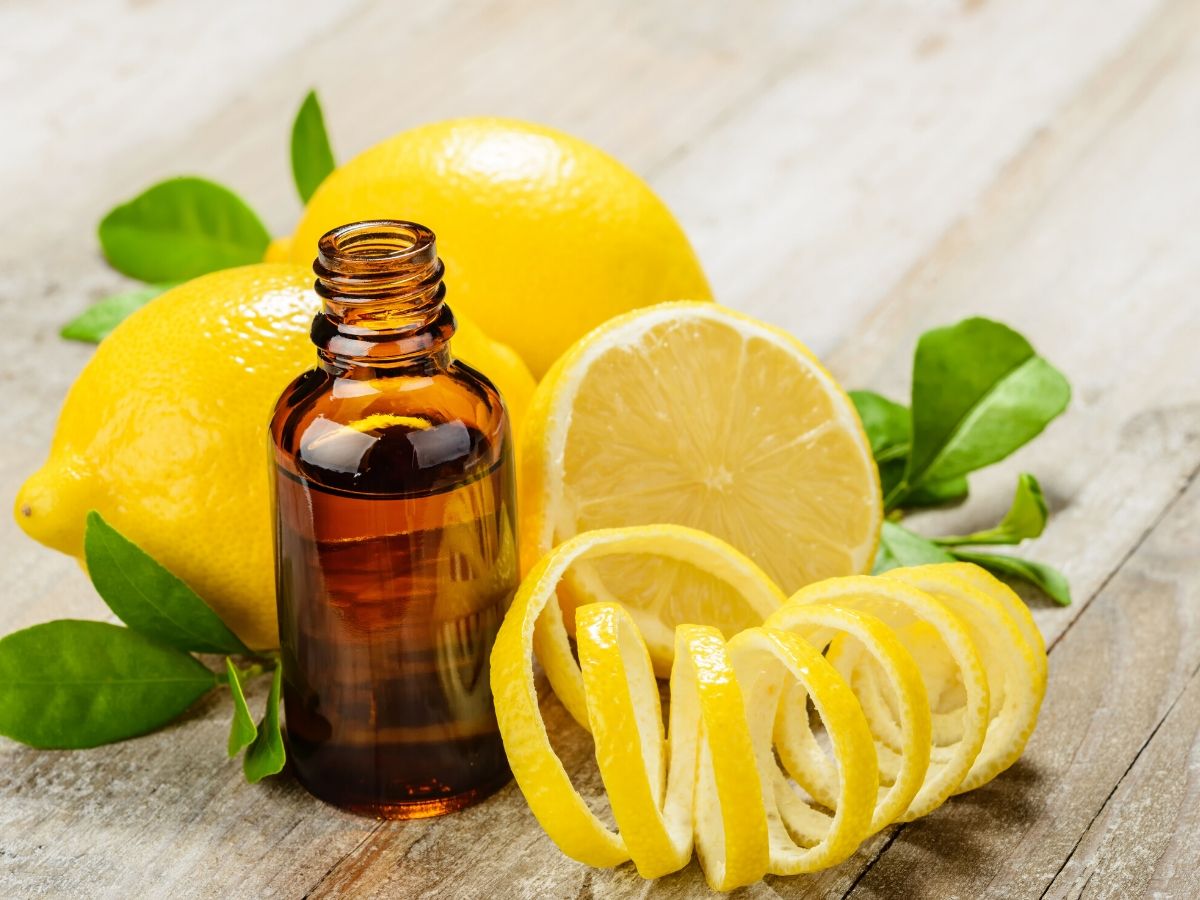
Lemon essential oil is helpful for a number of skin conditions, and acne is one of them. Because of the lemon’s high level of citric acid, it is highly effective at killing bacteria and keeping your skin clean. Lemon oil also helps to calm inflammation and reduce redness when blended with other essential oils (especially Lavender and Chamomile essential oils). Its astringent properties also help to tighten the skin, close pores, and prevent further blockages and inflammation.
While lemon oil is an excellent choice of essential oil to help with acne-prone and oily skin, you should only apply it directly to the skin when diluted with other oils. Lemon essential oil is phototoxic and can cause damaged or irritated skin through sun exposure, or UV rays. Therefore, you should limit regular daytime use to reduce any possible reactions.
4. Lemongrass
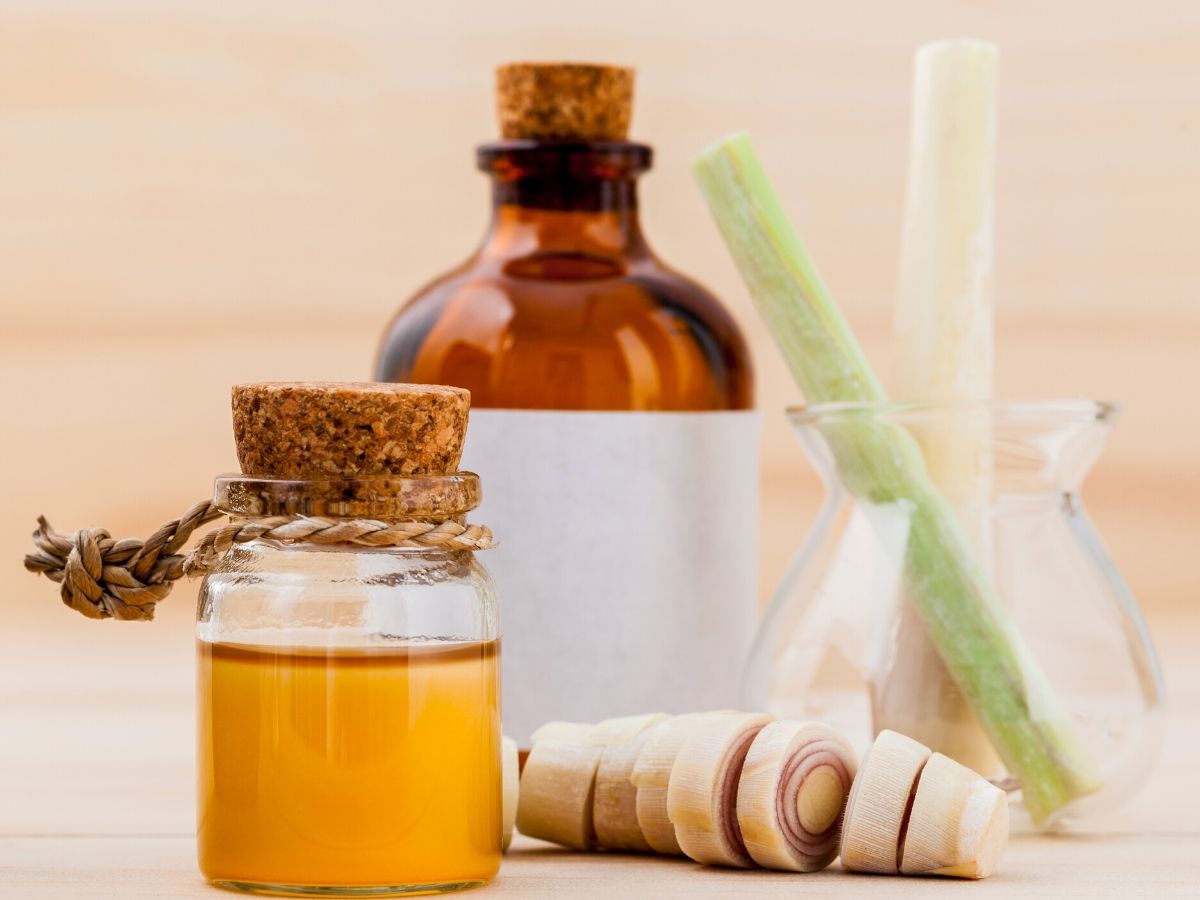
Similar to lemon essential oil, lemongrass essential oil is also excellent for acne-prone skin due to its antibacterial properties. It is a natural astringent, helping to minimize pores, eliminate blackheads, and thoroughly clean oils from the skin without over-drying.
Like lemon oil, you should dilute lemongrass essential oil with a carrier oil before applying to the skin. When misused or applied improperly to the skin, it can be dangerous and result in skin burns.
5. Frankincense
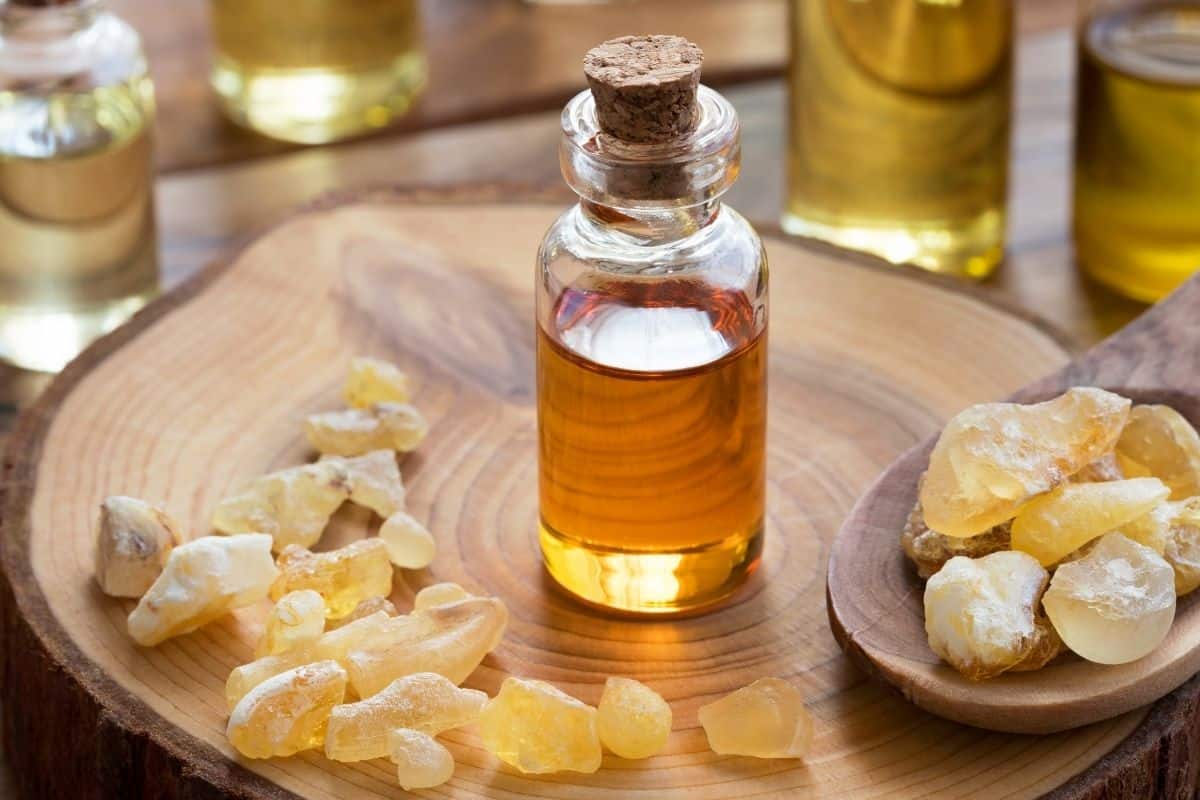
Also known for its antibacterial, antiseptic and antioxidant qualities, Frankincense is another ideal essential oil that helps with acne and oily skin, especially facial acne.
As a natural astringent, Frankincense dries out acne, tightens the skin, and helps to reduce the appearance of wrinkles. It also helps to prevent clogged pores and spots by reducing sebum production. Frankincense is often known as a healing oil, protecting and healing the skin against damage and inflammation.
However, it should be diluted with another carrier oil before applying to the skin.
It is important to note that Frankincense essential oil can interfere with medications such as those used to lower cholesterol, blood thinners, and anti-inflammatories. Therefore it is best to consult a physician before use.
6. Carrot Seed
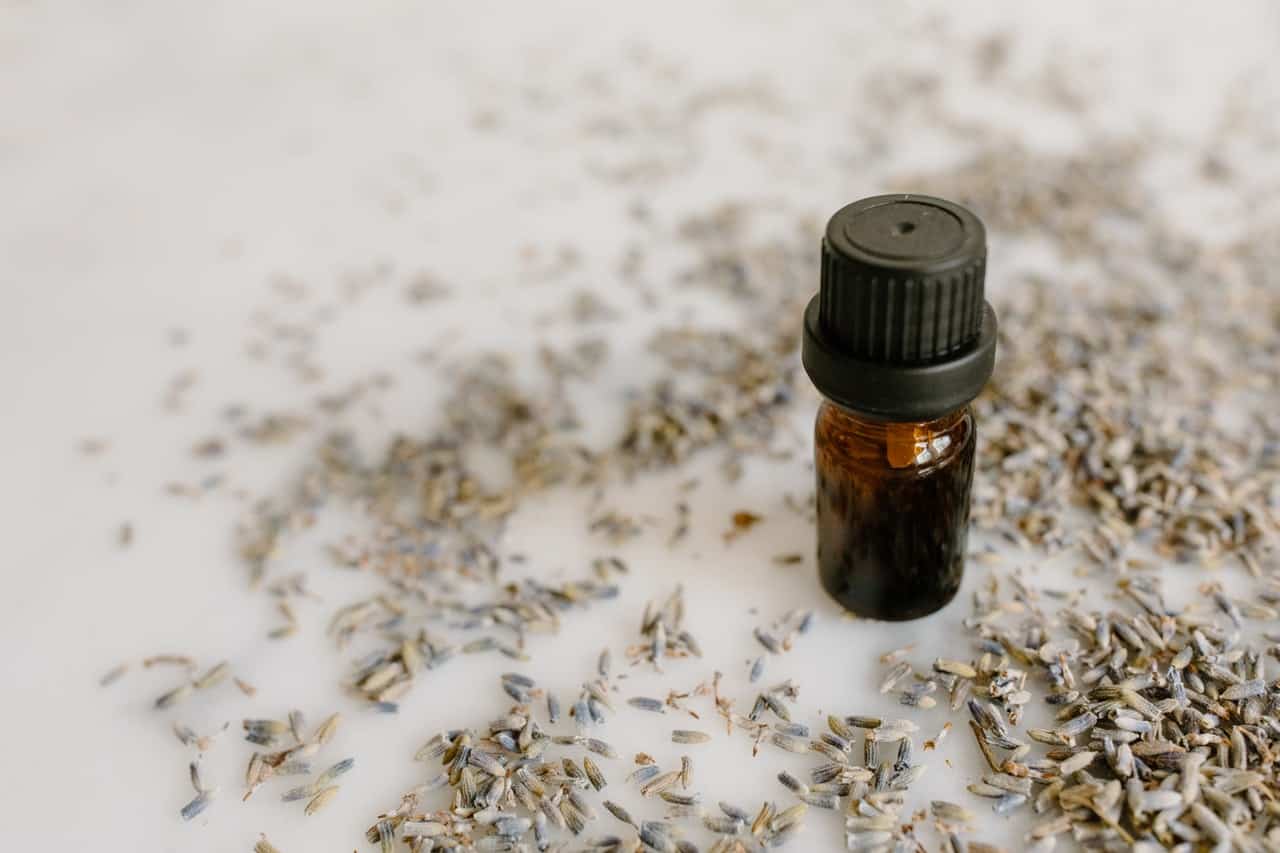
Carrots aren’t just good for eyesight, they can also do wonders for your skin! Carrot seed essential oil helps with acne thanks to its anti-inflammatory, antibacterial, and antifungal properties.
It is an ideal essential oil for use as a natural exfoliant that removes dead skin cells, cleanses pores, repairs dryness and reduces redness and irritation. With regular use, it can help to clear up old scars and leave your complexion feeling smooth, clear, and more radiant than before.
Just be sure not to confuse it with carrot oil, which is made specifically for cooking!
7. Lavender
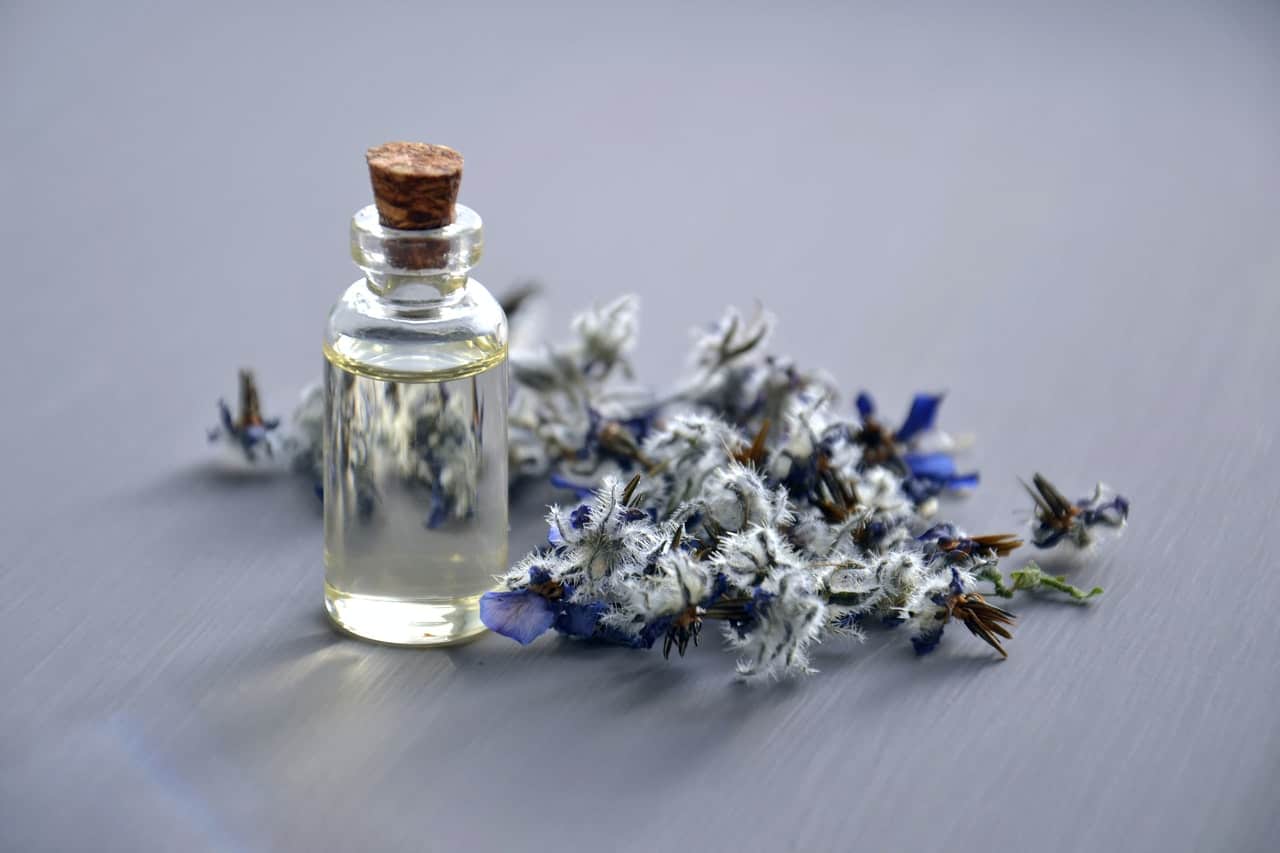
Lavender has come a long way from just being a way to freshen up a room, help reduce stress, or help you to relax and fall asleep. It is also an essential oil that helps with acne and other skin problems!
For those with acne-prone skin, lavender essential oil helps to kill bacteria, unclog pores and reduce inflammation. With regular use, it can lessen the occurrence of future acne breakouts and smooth the skin.
Before applying it, you should first dilute it with another carrier oil. However, you should avoid Lavender essential oil if you have sensitive skin or a contact allergy to lavender or lavender fragrance.
8. Rosemary
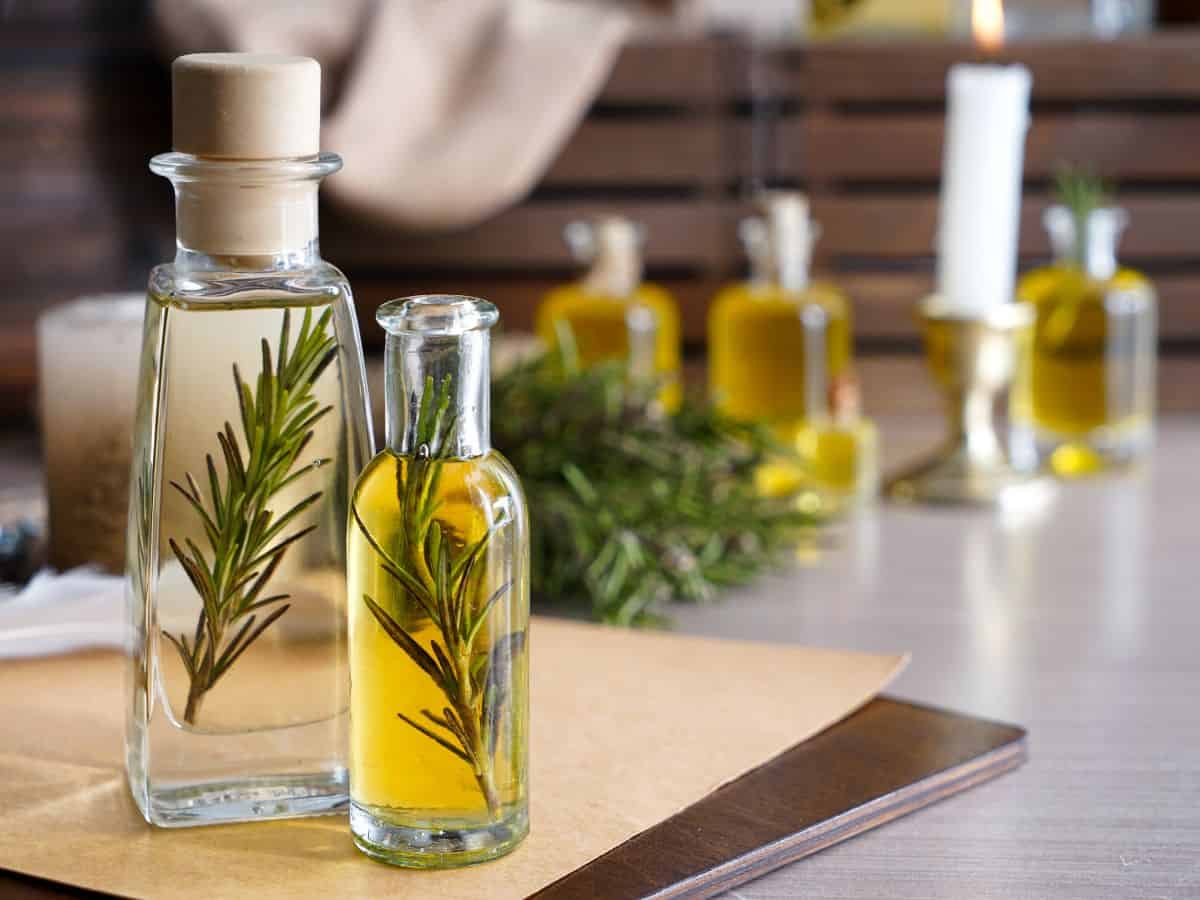
Rosemary essential oil is often used in skin care products made for combating acne and oily skin. Because of its strong antibacterial and antimicrobial qualities, it prevents acne bacteria from getting into your pores and then acts as a protective barrier against future breakouts.
Rosemary oil also acts as an astringent, decongesting oily pores and balancing and toning the skin. As a member of the mint family, it provides a refreshing touch to the skin. It increases circulation, provides stimulation and oxygen, and hydrates the skin.
Although a gentle oil, you should still mix Rosemary oil with a carrier oil before applying it. You can also mix it with moisturizing creams or face mask creams.
9. Bergamot
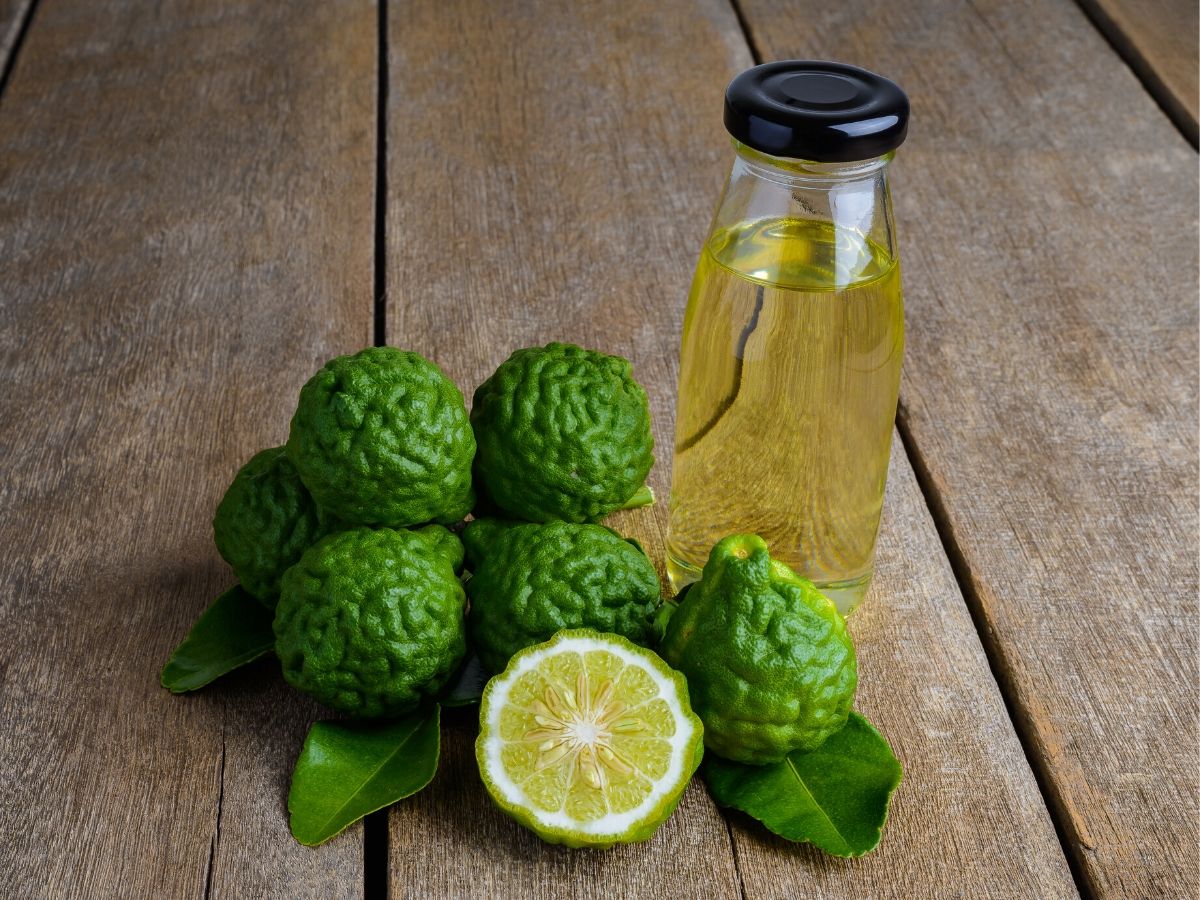
Generally, Bergamot oil helps with many skin conditions. But because of its antibacterial, anti-inflammatory, and astringent properties, it is a great essential oil to help with acne.
Bergamot is a great natural remedy for acne breakouts, as it helps reduce acne-causing bacteria on the skin. It also helps reduce excess sebum production and tighten pores, making it a great go-to skin product for those with oily skin.
However, it is worth noting that Bergamot is a phototoxic essential oil that could result in skin sensitization when applied and then exposed to sunlight. Proper use and dilution with other oils or body care products could help prevent any sensitization risk. Those with sensitive skin should also avoid using Bergamot.
10. Sandalwood
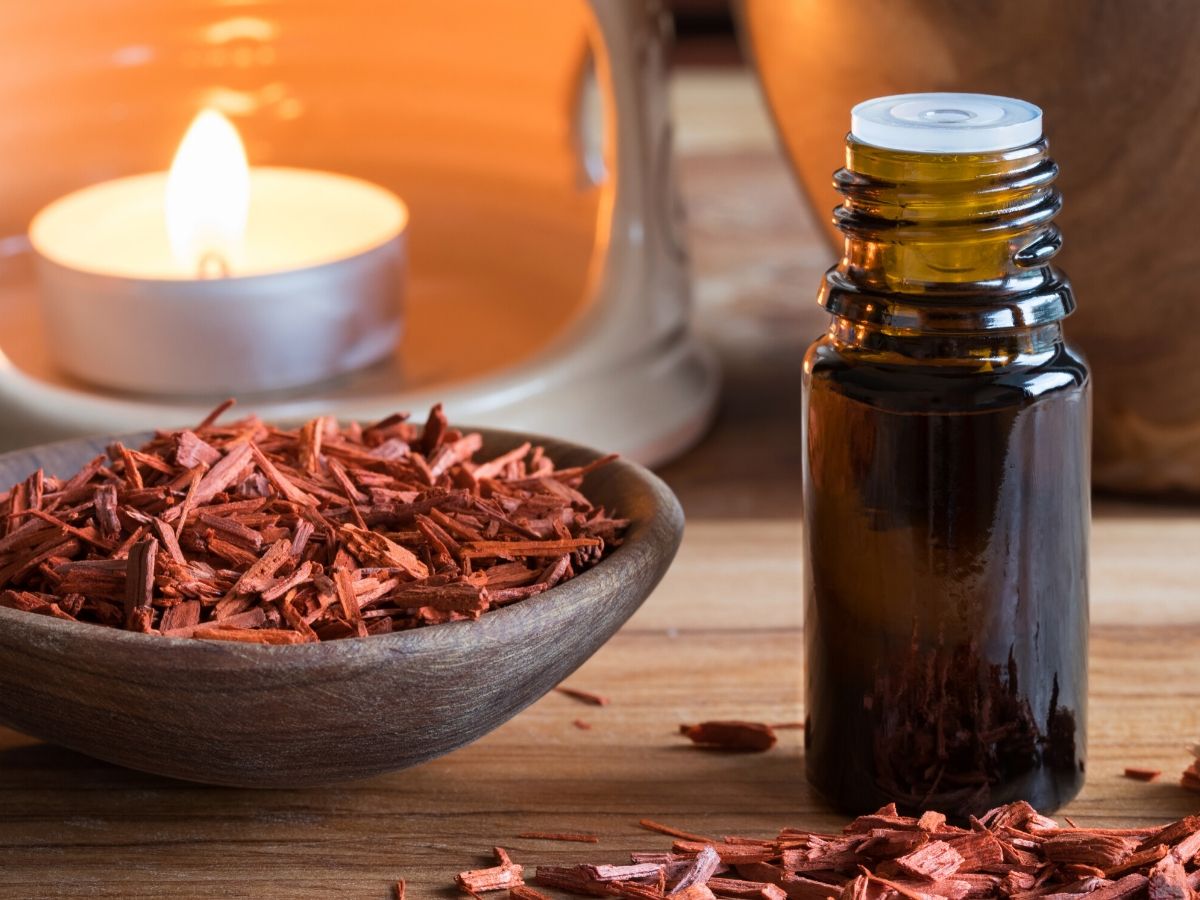
When used regularly, Sandalwood is an essential oil that can help clear pimples, soothe skin, and prevent future breakouts. In fact, because of its anti-inflammatory, antibacterial and antioxidant properties, it may even be beneficial to those who are prone to cystic acne breakouts.
Sandalwood essential oil is gentle enough for those with sensitive skin. However, before applying, you should test it on a small patch of skin to ensure there are no allergic reactions. When applied undiluted, Sandalwood oil has the potential to cause a severe allergic reaction. It is best to mix it with water or a carrier oil before applying.
11. Cedarwood
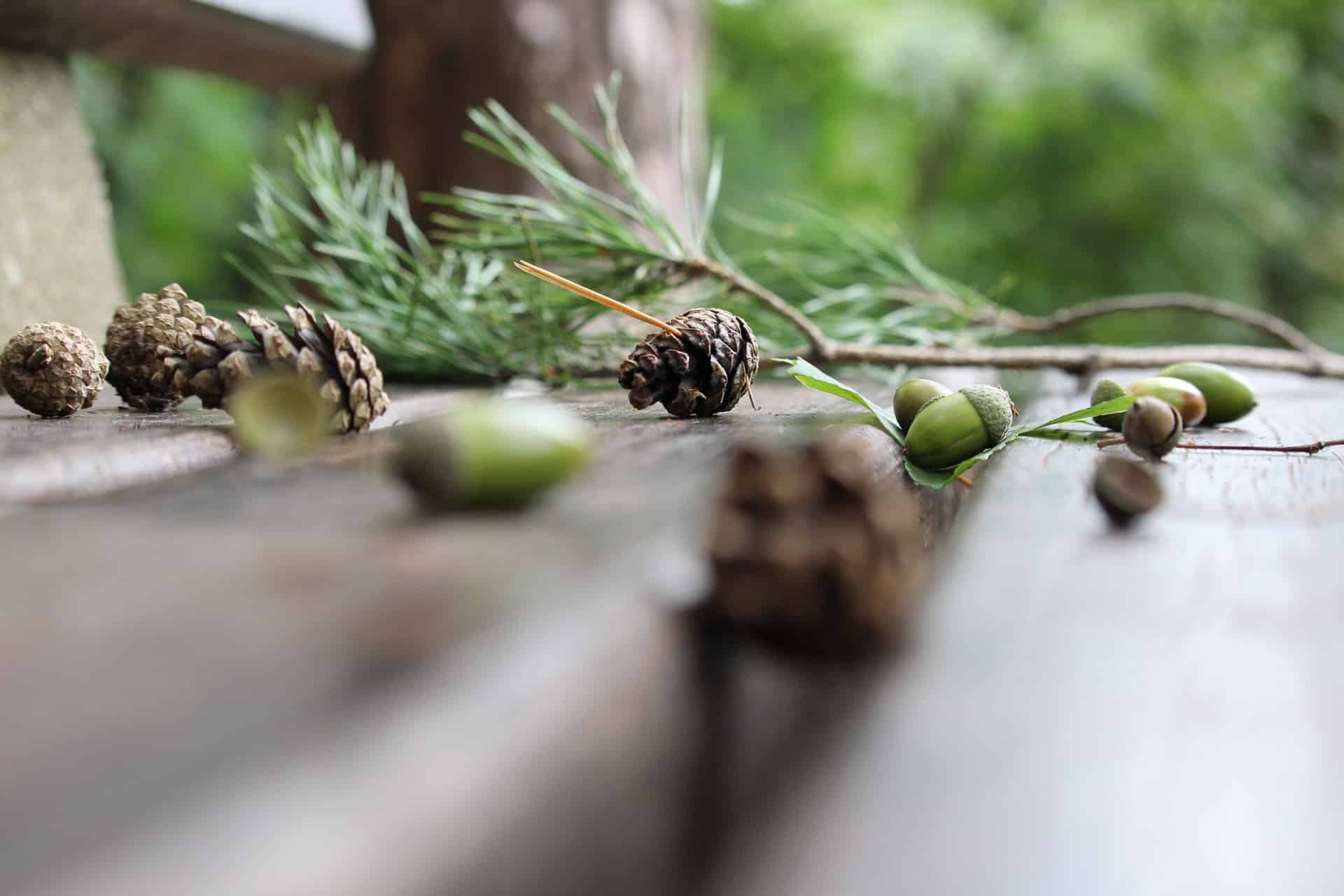
Cedarwood essential oil is most often used as an astringent that helps to repair and soothe both oily and acne-prone skin.
Its astringent properties help it to reduce inflammation, tighten enlarged pores, eliminate acne-causing bacteria, regulate sebum production (the culprit for oily skin), protect the skin against pollutants and toxins, and reduce the occurrence of future breakouts.
For acne-prone skin, Cedarwood oil should be a part of your daily routine. You should apply it (with a carrier oil, of course) after cleansing and before moisturizing your skin.
12. Clary Sage
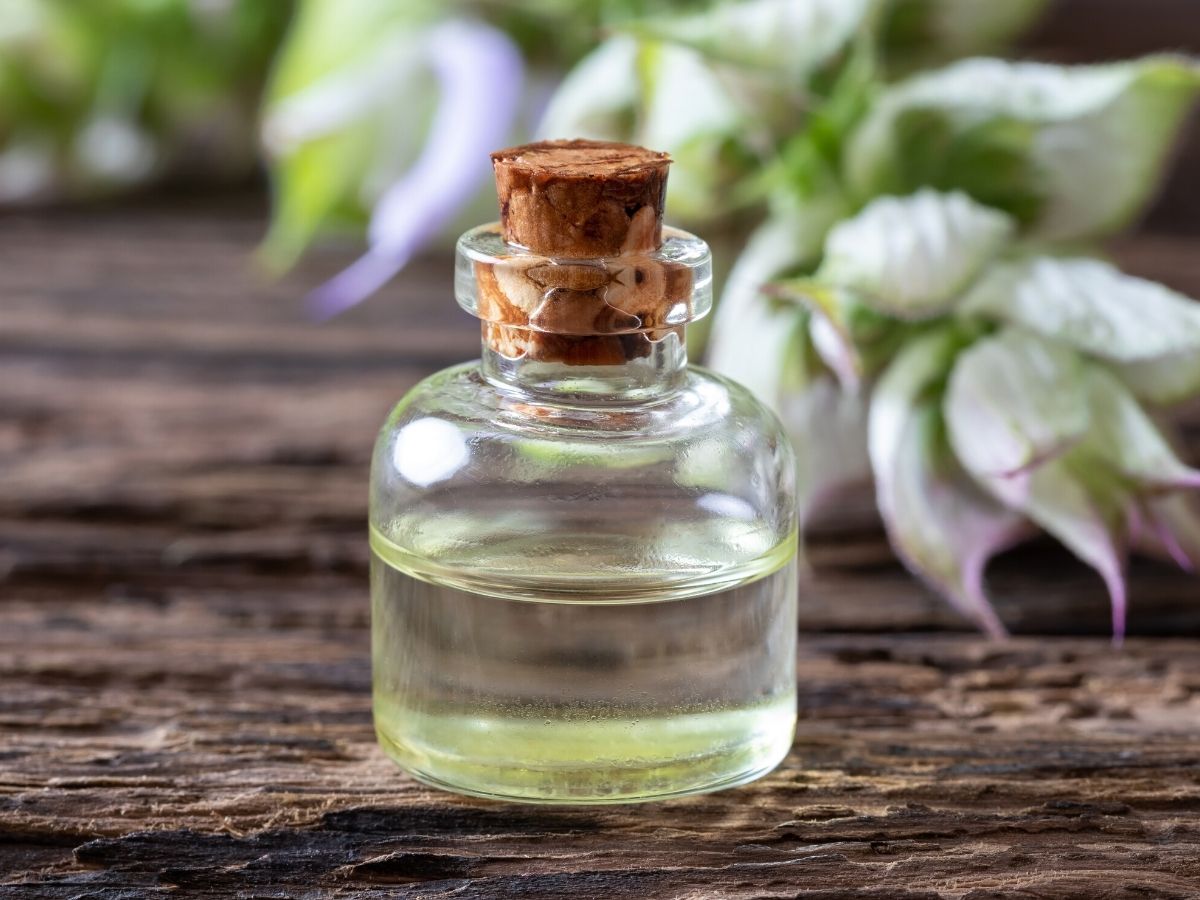
Clary Sage is a good essential oil to help with acne due to its cleansing and antibacterial properties. In fact, the word “Clary” comes from the Latin word clarus, which means clarifying or cleansing!
Clary Sage’s unique composition containing active compounds such as linalyl acetate and geranyl make it a go-to essential oil for controlling excess sebum production and future breakouts. These compounds also help to reduce inflammation and prevent scarring from previous acne breakouts.
When using clary sage essential oil on the face, it is very important to first dilute correctly by mixing with jojoba carrier oil. Just a couple of drops of clary sage with a 5ml bottle filled with the jojoba oil should do the trick!
13. Cypress

Cypress essential oil is often recommended as an essential oil to help with acne because of its antibacterial and antimicrobial properties. As a natural astringent, not only does it help to kill the bacteria that causes acne to develop and spread, but it also helps to reduce the appearance of oil on the skin.
Cypress essential oil is great to use as both a spot treatment for the occasional pop-up pimple, or as a regular treatment for acne-prone skin. Once you dilute in a carrier oil, you can apply it directly to the face after cleansing.
14. Rosehip

Rosehip oil’s healing and anti-inflammatory properties make it an effective essential oil treatment for acne, especially when combined with other acne-fighting ingredients.
When it come to improving clogged pores and the formation of blackheads and whiteheads, rosehip essential oil is an excellent choice. Additionally, its anti-inflammatory nature also helps to heal inflammatory acne such as cysts, papules, nodules and pustules. Because of rosehip oil’s concentration of omega-3 and omega-6 fatty acids, it also nourishes and moisturizes the skin and can reduce scarring from acne.
Unlike many other essential oils, you can apply rosehip directly to the skin in its pure form up to twice a day. You can also use it as a carrier oil for more potent essential oils. Rosehip is available as a topical treatment as well as an oral dietary supplement.
15. Chamomile
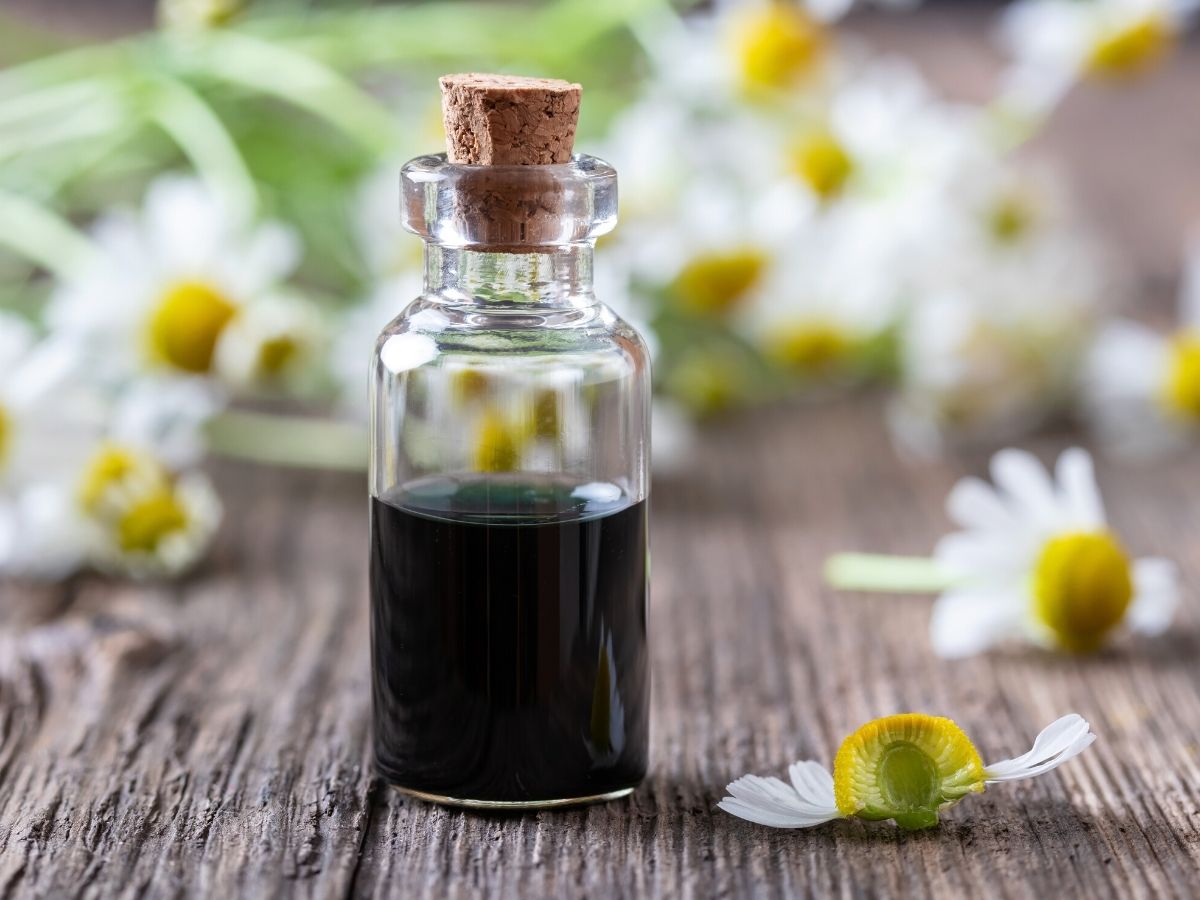
Just like Chamomile tea relaxes the body, chamomile essential oil calms the skin! In fact, it isn’t uncommon to find Chamomile in skin care products and lotions.
Chamomile is great for calming sensitive and irritated skin. Because of its antimicrobial and anti-inflammatory properties, it can also help with acne flare-ups. Chamomile oil also has some antibacterial properties that help it fight against acne-causing bacteria such as p.acnes.
You should never apply Chamomile essential oil to the skin directly. Doing so could cause further skin irritation and burns as well as slow down its evaporation. Instead, you should dilute it in a carrier oil before use.
Can These Oils Be Blended To Treat/Prevent Acne?
While all of these essential oils are great as individual oils, they’re even more potent when blended together. Some oils are better for mental health while others focus more on the ace, combining them combines both benefits.
Sandalwood and Clary Sage Blend – Anxiety Blend
Alone, both sandalwood and clary sage help tackle the mental health aspect of acne. Together, this blend can be the ultimate relief for social situations while also providing acne-treating benefits.
Lavender and Chamomile Blend – Sleep Blend
It’s any wonder why acne can cause insomnia. From stress to skin irritation, acne can make it difficult to fall asleep. Fortunately, a good blend of lavender and chamomile doesn’t just help soothe the skin, but it can help soothe the nerves too.
If you’re looking for essential oils to help prevent and treat acne, then any one of these eight essential oils are perfect for getting control over your own skin.
Other oil articles you will find helpful:
How to make essential oil body spray
How Many Drops Of Essential Oil To Properly Dilute
Essential Oils that Will Make Your House Smell Just Like A Spa
References:
